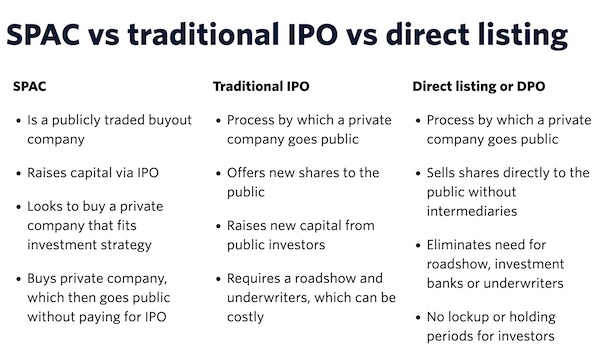- CFA Exams
- 2026 Level I
- Topic 3. Corporate Issuers
- Learning Module 1. Organizational Forms, Corporate Issuer Features, and Ownership
- Subject 3. Public and Private Corporations
Why should I choose AnalystNotes?
AnalystNotes specializes in helping candidates pass. Period.
Subject 3. Public and Private Corporations PDF Download
Private and public corporations are different in many ways.
Public corporations are usually listed on an exchange or ownership is easily transferable.
Private corporations are not listed on an exchange and therefore have no observable stock price.
The characteristics of the stock of a private company are different from that of public companies. These factors are generally negative for private company valuation.
Exchange Listing, Liquidity and Price Transparency
Public exchanges provide a forum where investors can efficiently trade securities. The ownership of a public corporation is easily transferable. Investors also enjoy the transparency provided by public exchanges, which allows them to observe how company valuations have fluctuated in the past in response to company-specific news or developments in the wider economy.
Transactions between buyers and sellers of private corporations are negotiated privately, and ownership transfer is much more difficult. Such corporations usually have potential agreements restricting liquidity, less liquid equity interests, and concentrated control.
Share Issuance
They can both issue shares to raise capital. Public companies typically raise large amounts from many investors, while private companies finance much smaller amounts from far fewer investors. Only accredited investors are permitted to invest in private companies.
Registration and Disclosure Requirements
Public companies are subject to greater regulatory and disclosure requirements. For example, the public disclosure of financial information through periodic filings with their regulator. Private companies are not required to make such disclosures to the public.
Going from Private to Public
Many private companies eventually choose to go public. While many companies choose to do an initial public offering (IPO), in which new shares are created, underwritten, and sold to the public, some companies choose a direct listing, in which no new shares are created and only existing, outstanding shares are sold with no underwriters involved.
Private companies can be acquired by public companies through a special purpose acquisition company (SPAC). A SPAC is a publicly-traded buyout company that raises capital through an IPO in order to purchase or gain a controlling stake in a company.

Going from Public to Private
Two common ways for public companies to to private are the leverage buyout (LBO) and management buyout (MBO).
User Contributed Comments 0
You need to log in first to add your comment.

I was very pleased with your notes and question bank. I especially like the mock exams because it helped to pull everything together.

Martin Rockenfeldt
My Own Flashcard
No flashcard found. Add a private flashcard for the subject.
Add